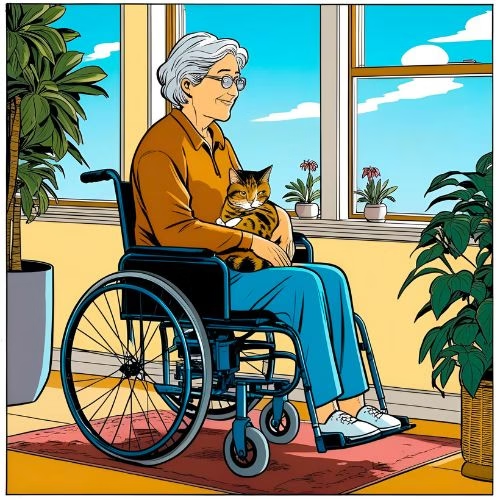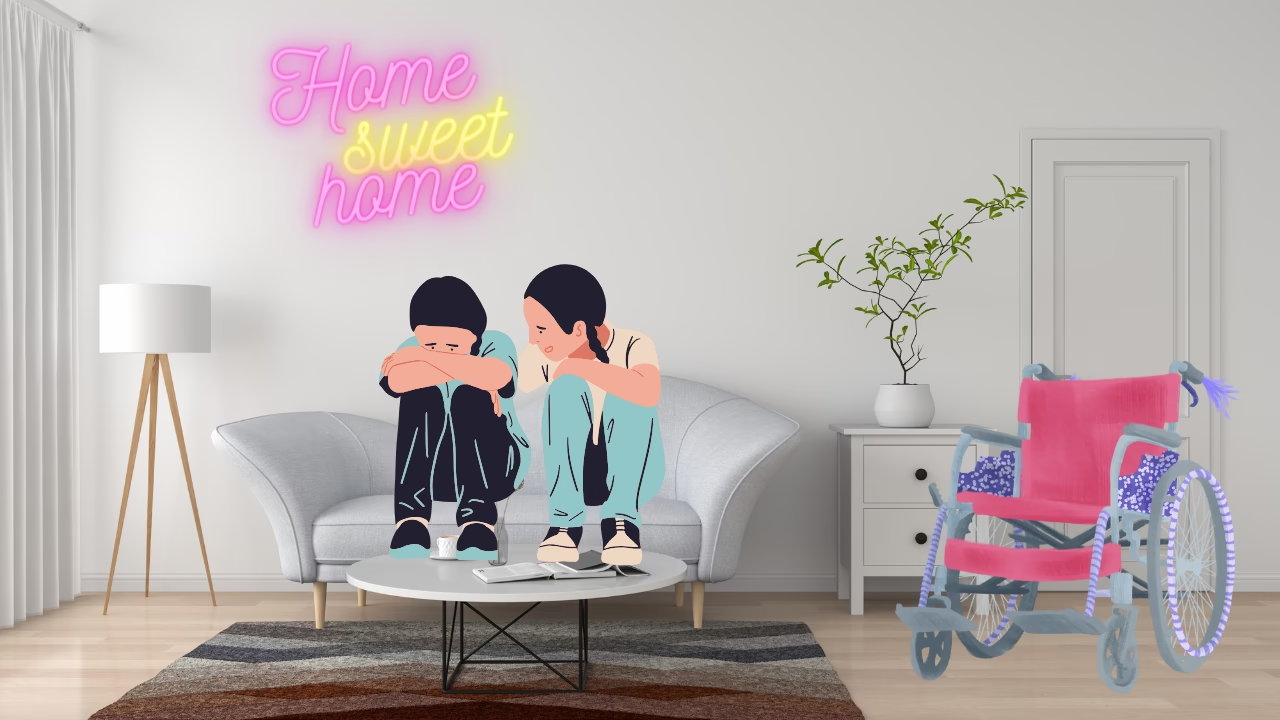Are you feeling a little glum, anxious, or just looking for some cosy company at home? You’ve probably heard about emotional support animals, but what does that really mean? And how are they different from regular pets, therapy animals, or service animals?
Let’s take a friendly dive into how emotional support animals can brighten your day—especially if you spend lots of time at home.
What are Emotional Support Animals?
An emotional support animal (ESA) is more than just your average pet. These wonderful companions offer a unique role, providing comfort, companionship, and emotional support to people who might be dealing with challenges like anxiety, PTSD, or even just feeling lonely. They understand you in a way that others may not.
While dogs and cats are the most common ESAs, they can be other animals too! If they help you feel more comfortable and connected, they might be your perfect furry (or not-so-furry) friend! However, it’s important to remember that owning an ESA comes with responsibilities such as providing proper care, attention, and meeting their specific needs.
It’s important to note that, unlike service animals, emotional support animals don’t need special training. Their main job is to be there for you, providing companionship to help lift your spirits and reduce feelings of sadness or isolation.

That’s where emotional support animals come in to save the day! They can help bring back a sense of routine. From feeding and petting to simply relaxing together, spending time with an animal can be such a comforting experience, providing a sense of reassurance and peace.
They don’t judge or rush you; they just want to be by your side, offering unconditional acceptance and respect. Many housebound folks find that their ESA helps them feel less alone. That gentle presence can truly ground you and remind you that you’re important and loved.
Understanding the Differences Between Emotional Support Animals and Service Animals
There’s often a bit of confusion about emotional support animals and service animals, but they’re actually quite different!
Service animals, most often dogs, are specially trained to perform specific tasks. For example, they might guide someone who’s visually impaired, alert a person about an upcoming seizure, or assist someone in a wheelchair by opening doors. They’re fabulous helpers for those who need them!
On the other hand, emotional support animals have a different role. While they don’t perform specific tasks like service animals, they do wonders for your emotional well-being. They’re not granted the same public access rights. Still, the comfort and joy they bring to your everyday life is truly invaluable.
Let’s Talk About Therapy Animals!
And then we have therapy animals, who also play a unique role! These lovely animals are trained to visit places like schools and hospitals, spreading comfort and happiness to groups of people. They’re not typically pets that live with the individuals they help, but they certainly brighten up the day for many.
In contrast, emotional support animals are there with you every day. They’re your loyal companions at home, providing that steady and loving presence that makes your space feel cosier and more welcoming.
So, if you’re on the lookout for a furry friend to brighten your life and add a little extra warmth to your home, an emotional support animal could be just what you need!
How to Qualify for an Emotional Support Animal
Finding the Right Emotional Support Animal for You
Not every animal is the right match for every person.
When considering a pet, it’s crucial to consider your energy levels and what kind of care you can comfortably provide. A playful dog can bring so much joy and love into your life, but they also need regular walks and plenty of playtime to stay happy.
On the other hand, a cat might be just the right fit if you’re looking for a quiet companion that requires a bit less maintenance. Whatever you choose, make sure it matches your lifestyle!
Some people find rabbits, birds, or guinea pigs comforting too.
Many people find comfort in animals like rabbits, birds, or guinea pigs. It’s nice to ask yourself, “Does this pet make me feel safer, calmer, or less lonely?” That’s what really counts!

For instance, a quiet indoor cat may be easier to care for than a large dog with lots of energy.
What Emotional Support Animals Can Do for Your Mental Health
Even on the toughest days, emotional support animals can bring moments of calm. Many people report:
- Better sleep
- Fewer panic attacks
- Lower blood pressure
- Reduced feelings of isolation
Caring for a pet also creates structure. That routine—feeding, grooming, cuddling—can bring stability when everything else feels uncertain.
Finding Your Animal Companion
You might already have a pet who fits the role beautifully. In that case, please speak with your doctor about having them recognised as an ESA.
If you’re starting fresh, local shelters and rescue centres are good places to look. Some organisations also match people with animals based on individual needs. Wherever your animal comes from, the most important thing is the bond you share.
A Gentle Word for the Heart
If you’re feeling a bit overwhelmed right now—whether you’re trying to figure out if an emotional support animal (ESA) is the right choice for you or if you’re already on this journey and struggling with your mental health—I just want to remind you: you are not alone. No matter where you are in the world, you are cared for and loved.
As Jesus said, “Are not two sparrows sold for a penny? Yet not one of them will fall to the ground outside your Father’s care.” (MAT 10:29). If He keeps an eye on the sparrows, you can be sure He’s watching over you too.
Sometimes, companionship is found in the quiet moments, in the company of friends, through prayer, or yes, through the unconditional love of a furry friend. If you find comfort in your faith, consider reaching out to God in prayer. Ask for peace, guidance, or just a bit of strength for whatever lies ahead.
You’re Not Alone—We’re in This Together!
Whether you’re thinking about getting an emotional support animal, have one already by your side, or are just looking for ways to take care of your emotional well-being, I hope this guide has helped you somehow. You deserve love, support, and comfort, including having a caring community around you.
And remember, if you ever want to chat, need prayer, or want to share your ESA story, feel free to join our Housebound Friends Facebook Group. We’d be thrilled to welcome you!
Final Thoughts on Emotional Support Animals: A Loyal Friend Beside You
Life at home can feel long and lonely—but emotional support animals offer steady, non-judgemental companionship. They won’t fix everything, but they’ll sit with you through it. They’ll listen without words, stay when the tears fall, and wag their tail (or twitch their whiskers) as if to say, You’re not alone.
Their love is a quiet gift. A reminder that you’re still worth showing up for—every single day.
Additional Resources
- UK: https://www.support-dogs.org.uk/
- US: https://www.nami.org/Your-Journey/Individuals-with-Mental-Illness/Taking-Care-of-Your-Body/Pets-and-Mental-Health
- Canada: https://www.cmhastarttalking.ca/blog/benefits-of-having-an-emotional-support-animal/
- Australia: https://mindmyhome.com.au/blog/therapy-pets-emotional-support-animals/
- New Zealand: https://rnzspca.org.nz/advice-and-welfare/article/animal-companionship-and-wellbeing






